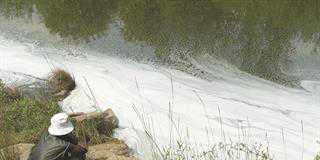Tell us about yourself. Where did you grow up and when did you start at Absa?
I spent the first five years of my life on a tea plantation near Barberton, after which my father bought an irrigation farm on the banks of the Orange River below the Vanderkloof Dam. This is where I grew up, and where my father still farms to this day.
I qualified as a chartered accountant after attending the University of the Free State and Unisa. After this, I lived and worked overseas for eight years, including long stints at European investment banks UBS and Credit Suisse.
During my time at these firms I was exposed to, among others, the powerful combination of supporting business strategy with technology, and how to drive rapid change through this. I moved back to South Africa in 2006, where I became involved in another passion of mine: social housing and the building trade until early 2009. I then joined AbsaCapital, Absa’s investment banking division. Here I cut my teeth in strategy and organisational structuring. I was appointed as chief operating officer for Absa AgriBusiness at the end of 2011 and then with the announcement of the Absa AgriBusiness strategic initiative in May this year, I was made managing executive of Absa AgriBusiness.
What is the reason for the Absa AgriBusiness restructuring?
Absa inherited a very strong agricultural legacy in the early 1990’s through Volkskas. Today we still hold the biggest market share in terms of the number of commercial farmers who bank with Absa. Over time our farmers were served in an increasingly fragmented manner through various pockets of excellence in the bank. For example, relationship managers who served both agricultural and commercial clients, product areas like hedging, commodity finance, vehicle and commercial asset finance, and insurance, as well as an Agricultural Centre of Excellence, all acting in a disjointed and silo approach.
There was no seamless and focused agricultural service delivery to our farmers. Fortunately our farmers gave us feedback in no uncertain terms that they would like to be served end-to-end through a dedicated agricultural business. And that is the first leg of the restructuring of Absa AgriBusiness: to appoint relationship managers who specialise only in agriculture. These agricultural banking specialists will understand our clients’ farming needs and risks in detail, and be supported by a countrywide team of highly skilled agronomists from the Agricultural Centre of Excellence under Ernst Janovsky.
In addition to this, we will link the relationship managers to dedicated agricultural risk advisors from our insurance division and product specialists from the various agricultural specialist product houses. Agriculture is a relationship business and with the launch of Absa’s dedicated AgriBusiness we are going to focus on one thing and one thing only: obsessive customer service.
What are some of the biggest challenges you anticipate facing as managing executive?
Building a successful Pan-African agricultural business will be my biggest challenge. There is a widely held view in Absa and Barclays that agriculture will likely be the single biggest economic opportunity for Africa in the 21st century. The road to that opportunity though is not clear and the path not smooth. As major financiers of agriculture in Africa we want to partner with other representative bodies and agribusinesses to influence African policymakers in creating favourable conditions for agricultural investment.
Wider than this would be to collaborate with as many role players as possible to start influencing a new world trade agreement that would ensure free market access. I believe this would be a significant stimulus accelerating economic recovery. The regional trade agreements which are filling the vacuum left by the failure of the World Trade Organisation’s Doha Round are a substantially inferior solution in terms of economic impact.
Another challenge that will only get bigger with time is the sustainable utilisation of large ecological assets. We are increasingly seeing different industries like mining, energy, and agriculture competing for the same scarce resources of land and water, sometimes with disastrous outcomes for nature and food security, as is the case in Mpumalanga.
Absa has partnered with Barclays to branch out into Africa. What opportunities or benefits does this hold for farmers?
There are significant benefits to Absa’s agricultural clients through the Barclays shareholding. Absa and Barclays are present in 14 countries in Africa and the Indian Ocean, which provides South African farmers with great opportunities for diversifying their agribusiness portfolios.
The Pan-African agribusiness is being built from the ground up, in other words there are permanent in-country resources and expertise. This will provide our clients with relevant information and advice on country-specific nuances like land tenure, financing options, legal and political framework and infrastructure.
Has the risk of financing farmers increased with the advent of land reform?
Not significantly. We are keeping an eye on the process and have provided our views on the Green Paper on Land Reform to government. Any interference with the market value of agricultural property will likely have a negative impact on its security value and hence impact financing. Agriculture is a long-term financing business and the bulk of financing is provided by banks on the back of the security value of farms.
My impression from talking to government is that the high level decision-makers are well aware of these inter-dependencies and the link to food security.
Is the absence of leasehold by developing farmers a challenge for banks in terms of financing?
It is in the sense of a lack of security value. But then again the flip side of a challenge is an opportunity.
I am a supporter of
the proper legislation of leasehold as a tenure type that should be registered and managed as a type of title deed via the Deeds Office and be tradeable in the open market, just like privately held or freehold property. This is the most common tenure type in Europe and there is no difference in the way banks there treat freehold or leasehold.
Are farmers reinvesting in their farms or are they putting their money elsewhere?
The negative political rhetoric aimed at the South African commercial agricultural sector has had the same impact as the rhetoric around mining – it creates uncertainty, and investors hate uncertainty, whether you are an international equity investor or a local farmer who must further invest in your own assets. It explains to a large extent why we see South African farmers exploring greener pastures in Africa and elsewhere.
Contact Brienne van der Walt on 011 350 4852.













